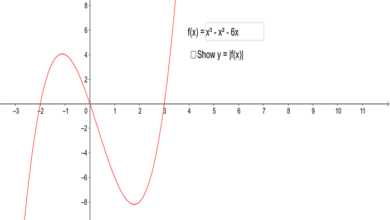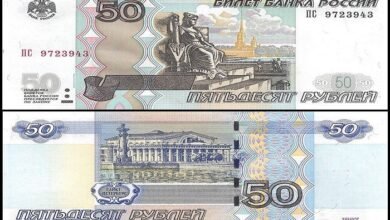
Words that start with ‘fore’ form a unique and interesting subset of the English language. These words often convey a sense of something that is in front, before, or ahead. Understanding these words can not only expand your vocabulary but also improve your comprehension and communication skills. In this blog post, we will explore a variety of words that start with ‘fore’, their meanings, origins, and how they are used in sentences.
The Meaning and Origin of ‘Fore’
The prefix ‘fore’ is derived from Old English and is related to the Old Norse ‘for’. It typically means ‘before’, ‘in front of’, or ‘earlier’. Words that start with ‘fore’ often indicate something that precedes or is situated at the front. Understanding this prefix can help decode the meanings of many English words.
Foresee
One of the most common words that start with ‘fore‘ is ‘foresee’. To foresee means to predict or anticipate something before it happens. For example, “The economist was able to foresee the recession.” This word is frequently used in contexts where predicting future events is essential, such as in weather forecasting or financial analysis.
Forefather
Another interesting word that starts with ‘fore’ is ‘forefather’. A forefather is an ancestor, particularly one from several generations ago. For instance, “The forefathers of the nation laid down the principles of democracy.” This word is often used in historical and genealogical contexts to refer to people who lived long before us.
Forefront
The term ‘forefront’ is used to describe the leading position in a movement or field. It means being in the most prominent or important position. An example sentence could be, “She is at the forefront of cancer research.” Words that start with ‘fore’ like ‘forefront’ emphasize leadership and prominence.
Forewarn
To forewarn means to inform someone of a possible future danger or problem. This word, like many words that start with ‘fore‘, is all about preparation and anticipation. For example, “The captain forewarned the crew about the approaching storm.” Forewarning is crucial in risk management and crisis prevention.
Foregone
The word ‘foregone’ refers to something that has already been determined or is inevitable. It is often used in the phrase ‘a foregone conclusion’. For instance, “Given the team’s record, their victory was a foregone conclusion.” Words that start with ‘fore’ like ‘foregone’ highlight certainty and inevitability.
Forebear
Similar to ‘forefather’, the word ‘forebear’ means an ancestor. However, ‘forebear’ is more commonly used in everyday speech. An example is, “Our forebears faced many hardships.” Words that start with ‘fore’ such as ‘forebear’ remind us of our heritage and lineage.
Foremost
The word ‘foremost’ means the most important or primary. It is often used to describe someone or something that is leading or preeminent in a particular field. For example, “She is one of the foremost experts in neuroscience.” Words that start with ‘fore’ like ‘foremost’ denote primacy and leadership.
Forecastle
A ‘forecastle’ is a part of a ship located at the front, usually where the crew’s quarters are. This nautical term exemplifies how words that start with ‘fore’ often relate to the front or leading part of something. An example sentence is, “The sailors gathered in the forecastle.”
Foreboding
Foreboding refers to a strong inner feeling or prediction that something bad or harmful will happen. For instance, “There was a sense of foreboding in the air before the storm hit.” Words that start with ‘fore’ like ‘foreboding’ convey anticipation of negative events.
Foreground
The term ‘foreground’ is used in art and photography to describe the part of a view that is nearest to the observer, especially in a picture or photograph. For example, “The foreground of the painting features a lush garden.” Words that start with ‘fore’ like ‘foreground’ are crucial in visual arts to describe spatial relationships.
Forearm
‘Forearm’ refers to the part of the arm between the elbow and the wrist. In anatomy, words that start with ‘fore’ often denote parts that are in front or forward. An example sentence is, “He injured his forearm during the match.”
Conclusion
Words that start with ‘fore‘ are diverse and rich in meaning. They encompass a wide range of concepts, from predicting the future to describing parts of the body and positions in space. By understanding these words, we can enhance our language skills and better appreciate the nuances of English vocabulary.
FAQs
1. What does the prefix ‘fore’ mean?
The prefix ‘fore’ typically means ‘before’, ‘in front of’, or ‘earlier’. It originates from Old English and is used in many words to convey a sense of precedence or front position.
2. Can you give examples of words that start with ‘fore’?
Some examples of words that start with ‘fore’ include foresee, forefather, forefront, forewarn, foregone, forebear, foremost, forecastle, foreboding, foreground, and forearm.
3. How is ‘foresee’ used in a sentence?
‘Foresee’ means to predict or anticipate something. An example sentence is, “The economist was able to foresee the recession.”
4. What is the difference between ‘forebear’ and ‘forefather’?
Both ‘forebear’ and ‘forefather’ refer to ancestors, but ‘forebear’ is more commonly used in everyday speech, while ‘forefather’ is often used in historical contexts.
5. What does ‘foreboding’ mean?
Foreboding refers to a strong feeling or prediction that something bad or harmful will happen. For example, “There was a sense of foreboding in the air before the storm hit.”





